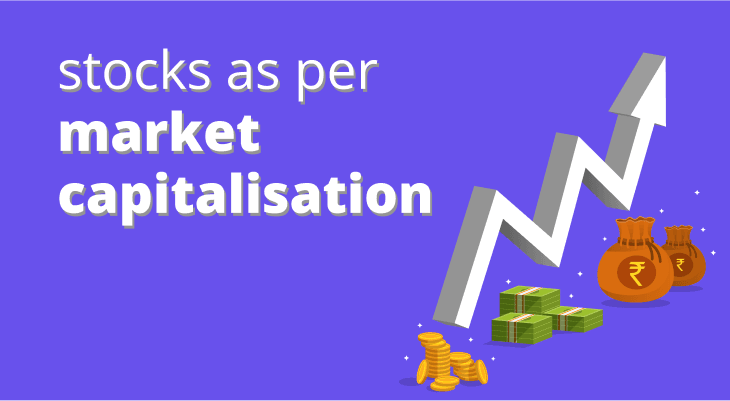
Types of Stock Trading
In recent years, stock trading has become a popular avenue for investors to grow their wealth. The advent of technology and the accessibility of online trading platforms have made it easier than ever to participate in the stock market. However, before you begin, it’s important to understand the different types of stock market trading available to you. This will help you in choosing the trading strategy that best suits your financial goals and risk tolerance.
What Is Stock Trading?
Before getting into the different share market trading types, let us understand the basics of stock trading first. In stock trading, stocks are bought and sold with the aim of making a profit. Stocks, also known as shares, represent ownership in a company, and by trading these, you can participate in the company's growth and success. Stock trading can be done on various platforms and through different methods, each with its unique approach and level of risk. The primary goal of stock trading is to buy stocks at a lower price and sell them at a higher price, thereby earning a profit.
Types of Trading Accounts
A trading account is a fundamental requirement for participating in any type of stock trading. It is linked to both your Demat and bank accounts, and ensures a smooth trading process. There are various types of trading accounts that cater to different investment styles and financial goals.
- Equity Trading Account: This account allows you to buy and sell equity shares or stocks on various stock exchanges, with the transactions being settled through your linked bank account.
- Commodity Trading Account: This account is specifically designed for trading in commodities such as gold, silver, crude oil, and agricultural products.
- Derivative Trading Account: This account is used to trade in derivative instruments such as futures and options that derive their value from underlying assets like stocks, commodities, or indices.
- Currency Trading Account: This account allows you to do forex trading in currency pairs, such as USD/INR, EUR/INR, etc.
- Margin Trading Account: This account allows you to borrow money from your broker to trade larger quantities of stocks than your available funds would normally allow.
- Intraday Trading Account: This account is designed for those who want to buy and sell stocks within the same trading day, and not hold them for longer.
- Offline Trading Account: Although online trading is popular, some investors prefer to trade through an offline trading account. This involves placing orders through a phone call to your broker, who executes the trades on your behalf.
- Combo Accounts: A 2-in-1 account combines a Demat and trading account into a single entity, simplifying the process of buying, selling, and storing shares. A 3-in-1 trading account is a comprehensive solution that integrates a Demat account, a trading account, and a savings bank account. It is usually offered by banks with brokerage services. Although it ensures seamless fund transfers and trading transactions, it also has the highest charges among the different types of trading accounts.
Current Impact of Online Trading
The rise of online trading has significantly impacted the way people invest in the stock market. Online trading platforms have made it quite easy for people to trade stocks from the comfort of their homes. Furthermore, top platforms like m.Stock provide access to real-time market data, trading tools, and resources that were once only available to professional traders. The convenience and speed of online trading have led to an increase in market participation, with more people engaging in different trading types in the stock market. This trend has also led to the development of new trading strategies and the evolution of existing ones.
Exploring the Different Types of Stock Trading
Now that you have an understanding of trading accounts and the impact of online trading, let’s explore the different types of trading in stock market:
- Intraday Trading: Here, you buy and sell stocks within the same trading day. It is also known as day trading. The goal is to capitalise on small price movements, and trades are often executed in large volumes. Intraday trading requires quick decision-making and a deep understanding of market trends.
- Swing Trading: In swing trading, traders retain stocks for short to mid term to benefit from the expected price movements. This type of trading is less intense than intraday trading and allows for more flexibility in trade decisions.
- Positional Trading: Positional traders hold onto stocks for several months or even years, based on the belief that the stock will appreciate in value over time. This is a long-term strategy that requires patience and thorough analysis of the company’s fundamentals.
- Scalping: Scalping is a short-term trading strategy where traders make dozens or even hundreds of trades in a day, aiming to profit from small price changes. It requires a high level of concentration and quick reflexes.
- Arbitrage Trading: Arbitrage involves buying and selling the same asset in different markets to profit from price discrepancies. This type of trading is more common among institutional investors, as it requires significant capital and access to multiple markets.
- Momentum Trading: Momentum traders buy stocks that are trending upwards and sell them when the momentum starts to wane. This strategy relies heavily on technical analysis and market timing.
Quick Tips for Investing in Stock Trading
- Start Small: New traders should start with a small amount of capital. This allows you to learn and make mistakes without risking significant losses.
- Research Thoroughly: Always do your research before making any trades. Understanding the company’s fundamentals, market trends, and economic factors can help you make informed decisions.
- Diversify Your Portfolio: By investing in a mix of stocks from different sectors, you can reduce the impact of a poor-performing stock on your overall portfolio.
- Set Clear Goals: Define your financial goals before you start trading. Your goals will determine your trading strategy.
- Use Stop-Loss Orders: To limit potential losses, always set stop-loss orders. This automatically sells your stock when it reaches a certain price, protecting you from significant losses.
Stay Updated: Keep a track of the various factors that influence the stock market, including economic data, political events, and global news.
FAQ
What is online trading?
Online trading refers to the process of buying and selling financial instruments, such as stocks, bonds, or currencies, through an internet-based trading platform. It allows investors to trade from anywhere with an internet connection, offering convenience, real-time access to market data, and lower transaction costs compared to traditional offline trading.
Which trading type is profitable?
The profitability of a trading type depends on various factors, including market conditions, the trader’s skill level, and their investment strategy. While long-term investing (buy and hold) in equity trading has historically proven profitable, short-term trading methods like intraday or swing trading can also be lucrative if done with the right knowledge and discipline. It’s important to match the trading type with your risk tolerance and financial goals.
Is online trading better than offline trading?
Online trading offers several advantages over offline trading, such as lower fees, faster execution of trades, and access to real-time market data and research tools. However, offline trading might be preferred by those who are less tech-savvy or who want personal guidance from a broker. Ultimately, whether online trading is better depends on your comfort with technology and your preference for convenience and autonomy.
What are the 3 major stock markets?
The three major stock markets globally are the New York Stock Exchange (NYSE), Nasdaq, and the Shanghai Stock Exchange. The BSE and the NSE are the two main stock exchanges in India.
What is the difference between equity and derivative trading?
Equity trading involves buying and selling shares of companies on the stock market, while derivative trading involves trading contracts based on the value of underlying assets like stocks, commodities, or indices. Equity trading represents ownership in a company, whereas derivatives are contracts that derive their value from other assets.
How do I choose the right trading account?
Choosing the right trading account depends on your trading goals, strategy, and the type of assets you wish to trade. For example, if you want to trade stocks, an equity trading account is necessary, while a commodity trading account is suitable for trading commodities.
What are the risks of intraday trading?
Intraday trading requires a good understanding of the market, discipline, and a sound trading strategy. The main risks include significant financial losses if the market moves against your position, the need for quick decision-making, and the possibility of emotional trading.
Can I trade in foreign stock markets from India?
Yes, you can trade in foreign stock markets from India through international trading accounts offered by certain brokers. These accounts allow you to buy and sell shares of companies listed on international exchanges like the NYSE or Nasdaq.
What is the role of SEBI in stock trading?
The Securities and Exchange Board of India (SEBI) is the regulatory authority for the securities market in India. SEBI's role in stock trading includes protecting investors' interests, regulating stock exchanges and intermediaries, preventing fraudulent activities, and ensuring the smooth functioning of the stock market. SEBI also sets guidelines for the operation of trading accounts and the conduct of brokers.
How do I get started with stock trading?
To get started with stock trading, you need to open a Demat and trading account with a registered broker like m.Stock. Once your account is set up, you can deposit funds, research and choose stocks, and start trading through an online platform.


